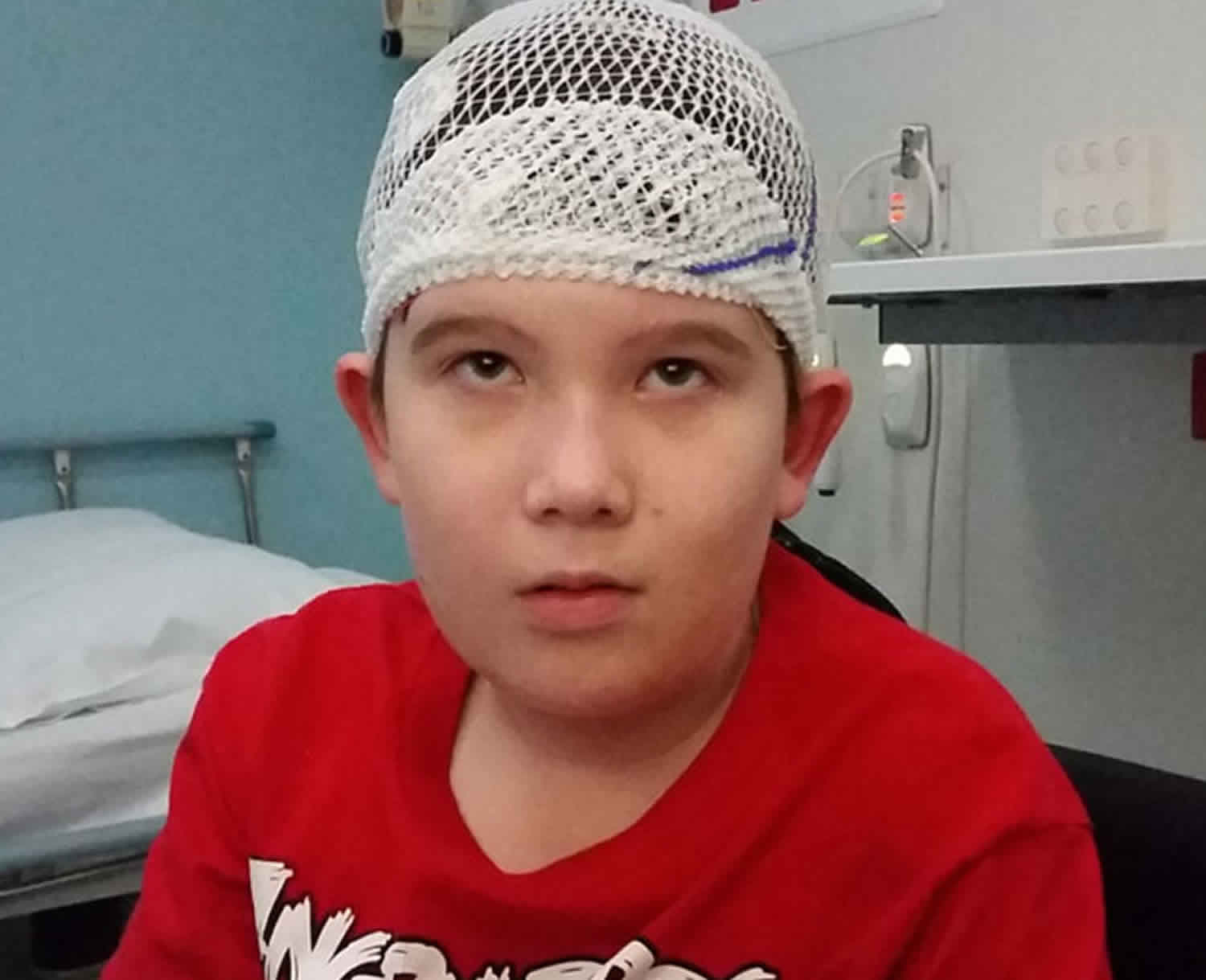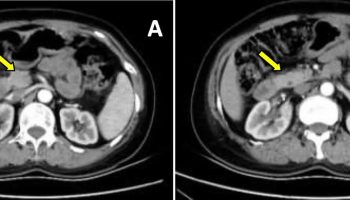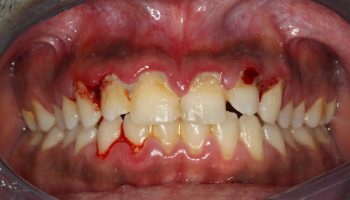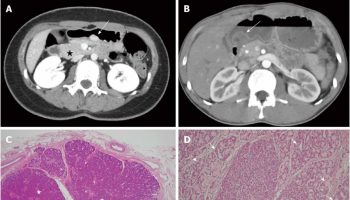Landau Kleffner syndrome
Landau-Kleffner syndrome also known as acquired epileptic aphasia, progressive epileptic aphasia or aphasia with convulsive disorder, is a rare childhood neurological syndrome characterized by the sudden or gradual development of aphasia (the inability to understand or express language) and recurrent seizures (epilepsy). Landau-Kleffner syndrome affects the parts of the brain that control comprehension and speech, typically affecting understanding rather than expression. Children with Landau-Kleffner syndrome typically develop normally until signs and symptoms of the syndrome begin to develop between age 2 and 7 years 1. Typically, children with Landau-Kleffner syndrome develop normally but then lose their language skills for no apparent reason. While many of the affected individuals have seizures, some do not. Males are more often affected by Landau-Kleffner syndrome than females 1.
In about 20% of people with Landau-Kleffner syndrome, mutations (changes) in the GRIN2A gene have been identified. Landau-Kleffner syndrome is inherited in an autosomal dominant manner. In other cases, Landau-Kleffner syndrome may be caused by changes to other unidentified genes 2. Landau-Kleffner syndrome is diagnosed when a doctor sees clinical features that are consistent with the syndrome such as a loss of speech and an electroencephalogram (EEG) that shows specific kinds of seizure activity. Specifically, the EEG typcally shows an increase to nearly continuous abnormal brain activity firing (spikes) during sleep that scientists believe impair memory formation 1. Genetic testing can be used to confirm if there is a mutation in GRIN2A, but this testing is not done routinely 3.
Treatment for Landau-Kleffner syndrome usually consists of medications such as anticonvulsants and corticosteroids to help prevent seizures. Speech therapy should also be started promptly in order to ensure the best long-term outlook for children with Landau-Kleffner syndrome 3. A controversial treatment option involves a surgical technique called multiple subpial transection in which the pathways of abnormal electrical brain activity are severed 1.
Landau Kleffner syndrome causes
The cause of Landau-Kleffner syndrome is unknown although a spectrum of epileptic conditions including Landau-Kleffner syndrome has been described in individuals with GRIN2A gene mutations but is not common and other candidate genes including RELN, BSN, EPHB2 and NID2 have been suggested. A family history of seizures can be seen but is not typical. The response in some patients to immunosuppression has raised the question of autoimmune and other inflammatory mechanisms as potential contributors.
GRIN2A gene provides instructions to the body to make a protein that sends signals to the nerve cells (neurons) in the brain. When these signals are not being transmitted properly, they may affect the ability to understand or express language 2. These signals may also cause receptors in the brain to be turned on abnormally, resulting in seizures 2. It has been proposed that the seizures associated with Landau-Kleffner syndrome may cause damage to the parts of the brain responsible for speech, but this hypothesis has not been confirmed 4.
In about 80% of people diagnosed with Landau-Kleffner syndrome, no mutation is found in the GRIN2A gene. In these cases, it is thought that Landau-Kleffner syndrome could be caused by mutations in other genes or an interaction between genes and the environment 2. It has also been proposed that in some cases Landau-Kleffner syndrome may be the result of an autoimmune response that occurs when the body attacks itself as if it were an infection 4.
A few cases of secondary Landau-Kleffner syndrome or acquired epileptic aphasia have also been described 5. Low-grade brain tumors 6, closed-head injury, neurocysticercosis 7 and demyelinating disease 8 have been associated with the clinical picture of acquired epileptic aphasia. Central nervous system (CNS) vasculitis may also be associated with Landau-Kleffner syndrome 4. One case of otherwise typical acquired epileptic aphasia has been described in association with mitochondrial respiratory chain complex I deficiency 9. Bilateral perisylvian polymicrogyria may also present with new onset of speech disturbance after a 2-year period of normal language and electroencephalographic (EEG) findings typical of acquired epileptic aphasia 10. Other diagnostic considerations might be warranted when evaluated a case of suspected acquired epileptic aphasia.
Landau Kleffner syndrome inheritance pattern
In cases where Landau-Kleffner syndrome is caused by mutations to GRIN2A, it is inherited in an autosomal dominant manner 2. This means that if one copy of the GRIN2A gene is changed, a person will have symptoms of the syndrome. You inherit one copy of each gene from your mother and the other from your father.
When a person with Landau-Kleffner syndrome has children, each child has a 50% (1 in 2) chance to inherit the same gene change that causes the syndrome. However, Landau-Kleffner syndrome reportedly shows reduced penetrance 11. This means that not every person with a disease-causing mutation will have features of the syndrome. Therefore, it is possible for Landau-Kleffner syndrome to appear to “skip” generations. If a person with Landau-Kleffner syndrome has a child with the gene change but no features of the syndrome, when this person goes on to have children, he or she may have features of Landau-Kleffner syndrome.
Landau-Kleffner syndrome also shows variable expressivity 4. This means that not all affected people will have the same signs and symptoms, and some people may be more severely affected than others.
In some cases, a mutation that causes an autosomal dominant syndrome is inherited from a parent with the mutation. In other cases, autosomal dominant syndromes are due to new mutations that occur for the first time (de novo) in an affected person.
In cases where Landau-Kleffner syndrome is not caused by a mutation in GRIN2A, it is not known if the syndrome may be inherited. If Landau-Kleffner syndrome is caused by a mutation in another gene, this mutation can be passed from parent to child.
Landau Kleffner syndrome symptoms
Landau-Kleffner syndrome is characterized by the sudden or gradual development of aphasia (the inability to understand or express language). Landau-Kleffner syndrome usually begins in children between 2 and 8 years old, with the most common age of onset is 5 to 7 years of age. A slow or sudden loss of the ability to understand speech or familiar sounds is typically seen in a child who has been developing appropriately. While it usually affects the child’s understanding of spoken language the most, it may affect both understanding speech and speaking ability. It can also affect the ability to recognize sounds in general. Children can seem to be deaf because of an inability to understand spoken language, but detailed tests of hearing are normal. Attention deficit problems – with or without hyperactivity, anxiety, and aggression – can be seen in almost 8 out of 10 children. Children who lose language because of Landau-Kleffner syndrome tend to be older than children that lose language because of autism spectrum disorders.
Landau-Kleffner syndrome also characterized by an abnormal electroencephalogram (EEG), especially during sleep 12. About 70% of children with Landau-Kleffner syndrome have seizures 2. The seizures associated with Landau-Kleffner syndrome are known as complex partial, generalized clonic, and atypical absence seizures and are generally easy to control with medications.
Some children with Landau-Kleffner syndrome may develop behavioral problems including hyperactivity, attention deficits, temper outbursts, impulsivity, and/or withdrawn behaviors 12. Some children with Landau Kleffner syndrome may also have intellectual disability 2. As researchers continue to learn more about Landau-Kleffner syndrome, it seems that there may be a wider variety of signs and symptoms associated with this syndrome than originally thought. There may be a variability of symptoms associated with Landau-Kleffner syndrome even within the same family 4.
Landau Kleffner syndrome diagnosis
In additional to language regression, Landau-Kleffner syndrome diagnosis requires the presence of severely epileptiform activity on electroencephalogram (EEG), particularly during non-REM sleep. Children with Landau-Kleffner syndrome have abnormal electrical brain activity on both the left and right side of the brain 1. Additional testing may include magnetoencephalography. Brain imaging with magnetic resonance imaging (MRI) is recommended to exclude structural lesions since several cases have resulted from brain tumors. Other testing including behavioral and/or brainstem evoked audiometry and standardized psychometric and speech/language testing are helpful to exclude hearing loss and provide the basis for therapies to aide in recovery 13.
In some cases, Landau-Kleffner syndrome is originally misdiagnosed as autism, pervasive developmental disorder, hearing impairment, learning disability, auditory/verbal processing disorder, attention deficit disorder, intellectual disability, childhood schizophrenia, or emotional/behavioral problems 1.
Because a single underlying genetic cause has not been identified for all individuals with Landau-Kleffner syndrome, routine genetic testing is not completed at all centers. Researchers additionally suspect that mutations within the RELN, BSN, and EPHB2 genes might be involved with the symptoms of Landau-Kleffner syndrome 14.
Landau Kleffner syndrome treatment
The treatment for Landau-Kleffner syndrome may vary depending on the specific symptoms present in each person. Children who have seizures may be prescribed anticonvulsant medications particularly “spike-suppressing” medications such as divalproex, ethosuximide, levitiracetam, and benzodiazepines 12. Other antiepileptic drugs that may be beneficial are lamotrigine and felbamate. Some authors have suggested using a combination of corticosteroids and pulse benzodiazepines 1. In some cases, immunotherapy may improve speech and seizures 15. In rare cases in which other treatment options for seizures have not been successful, a surgery called multiple subpial transection may help to relieve seizures 3.
Speech therapy should be initiated as soon as possible to help children regain speech and communication skills 1. Speech therapists may also recommend helping affected children with little or no understanding of language learn sign language to help them find new ways to communicate. Special education classes for children with severe speech and language disorders may prove beneficial as well 12.
Investigational therapies
When antiepileptic drugs are ineffective, other approaches include the ketogenic diet or treatment with intravenous immunoglobulin 12. Calcium-channel blocking drugs may also be beneficial. A neurosurgical procedure called multiple subpial transection has been used in some centers for children who fail to improve linguistically within two years and for those who develop steroid dependency or toxicity 12.
Landau Kleffner syndrome prognosis
The prognosis or long-term outlook for children with Landau-Kleffner syndrome varies and may depend on the age that a child started showing symptoms of the syndrome and the severity of seizures. Some affected children may have a permanent severe language disorder, while others may regain much of their language abilities (although it may take months or years). In some cases, remission and relapse may occur. The prognosis is improved when the onset of the disorder is after age 6 and when speech therapy is started early 1. In most cases, seizures are well-controlled with medication, and they typically disappear completely by adulthood, and the distinctive epilepsy activity on EEG also tends to improve by that time 1. While speech therapy improves the language abilities of most people with Landau-Kleffner syndrome, most children do not regain complete language ability 3. Improvement of language in children with Landau-Kleffner syndrome may require months or years of therapy 1.
References- Landau-Kleffner Syndrome Information Page. https://www.ninds.nih.gov/Disorders/All-Disorders/Landau-Kleffner-Syndrome-Information-Page
- Epilepsy-aphasia spectrum. https://ghr.nlm.nih.gov/condition/epilepsy-aphasia-spectrum
- Landau-Kleffner syndrome. https://www.orpha.net/consor/cgi-bin/OC_Exp.php?lng=en&Expert=98818
- Acquired Epileptic Aphasia. https://emedicine.medscape.com/article/1176568-overview
- Kotagal P. Secondary epileptogenesis [editorial]. J Clin Neurophysiol. 1997 Mar. 14(2):89.
- Solomon GE, Carson D, Pavlakis S, et al. Intracranial EEG monitoring in Landau-Kleffner syndrome associated with left temporal lobe astrocytoma. Epilepsia. 1993 May-Jun. 34(3):557-60.
- Otero E, Cordova S, Diaz F, et al. Acquired epileptic aphasia (the Landau-Kleffner syndrome) due to neurocysticercosis. Epilepsia. 1989 Sep-Oct. 30(5):569-72.
- Primavera A, Gianelli MV, Bandini F. Aphasic status epilepticus in multiple sclerosis. Eur Neurol. 1996. 36(6):374-7.
- Kang HC, Kim HD, Lee YM. Landau-Kleffner syndrome with mitochondrial respiratory chain-complex I deficiency. Pediatr Neurol. 2006 Aug. 35(2):158-61.
- Huppke P, Kallenberg K, Gartner J. Perisylvian polymicrogyria in Landau-Kleffner syndrome. Neurology. 2005 May 10. 64(9):1660.
- EPILEPSY, FOCAL, WITH SPEECH DISORDER AND WITH OR WITHOUT MENTAL RETARDATION; FESD. https://www.omim.org/entry/245570
- Landau Kleffner Syndrome. https://rarediseases.org/rare-diseases/landau-kleffner-syndrome
- Myers KA, Scheffer IE. GRIN2A-Related Speech Disorders and Epilepsy. 2016 Sep 29. In: Adam MP, Ardinger HH, Pagon RA, et al., editors. GeneReviews® [Internet]. Seattle (WA): University of Washington, Seattle; 1993-2020. Available from: https://www.ncbi.nlm.nih.gov/books/NBK385627
- Conroy J, McGettigan PA, McCreary D, Shah N, Collins K, Parry-Fielder B, Moran M, Hanrahan D, Deonna TW, Korff CM, Webb D, Ennis S, Lynch SA, King MD. Towards the identification of a genetic basis for Landau-Kleffner syndrome. Epilepsia. Jun 2014; 55(6):858-65. https://doi.org/10.1111/epi.12645
- Nina Fainberg, Amy Harper, Dmitry Tchapyjnikov, Mohamad A. Mikati. Response to immunotherapy in a patient with Landau-Kleffner syndrome and GRIN2A mutation. Epileptic Disorders. 2016;18(1):97-100. doi:10.1684/epd.2016.0791 https://www.jle.com/download/epd-306244-30396-response_to_immunotherapy_in_a_patient_with_landau_kleffner_syndrome_and_grin2a_mutation-a.pdf





